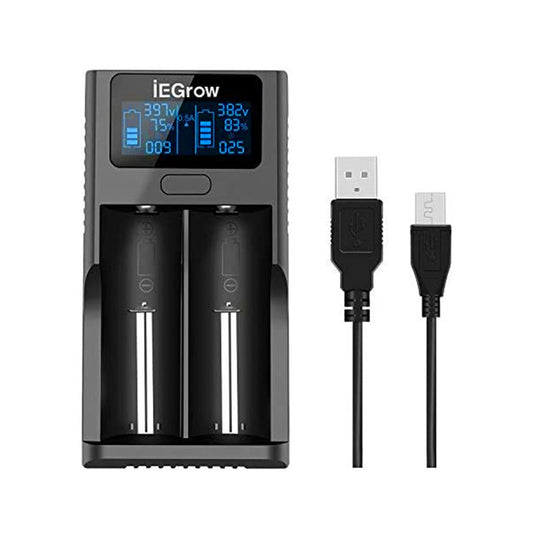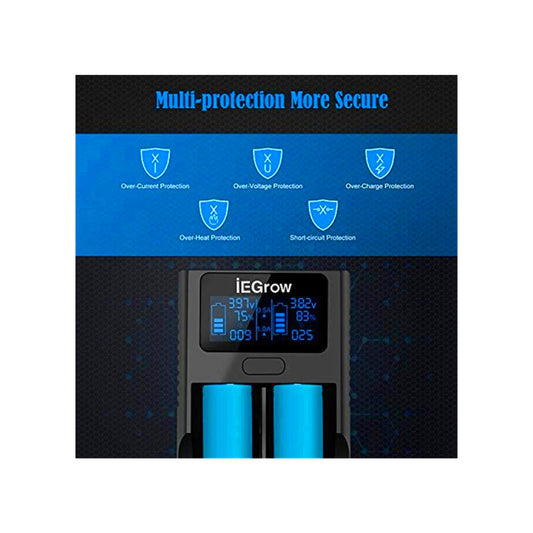With various types and associated expenses, understanding the financial landscape can empower you to make informed decisions. So, let’s delve into the key factors that determine e-bike costs, from initial purchase prices to ongoing expenses. Whether you're curious about different batteries for electric bikes or exploring your options for upgrading, knowing the costs involved is crucial.
Electric Bike Types and Price Ranges
Electric bicycles come in various styles, each tailored to different riding experiences and preferences. Here’s an overview of common types and their price ranges:
-
City Electric Bicycles: $800 to $2,500 Designed for urban commuting, these models often feature a comfortable riding position and practical accessories.
-
Mountain E-Cycles: $1,500 to $5,000+ Built for rugged trails, they include robust tires and suspension systems to handle rough terrain.
-
Folding Electric Bikes: $600 to $2,000 Compact and portable, these are ideal for commuters with limited storage space or those using public transport.
-
Cargo E-Bicycles: $1,500 to $3,500 Equipped with sturdy frames and racks, they’re perfect for transporting goods or passengers.
-
Hybrid Electric Bicycles: $800 to $3,000 Combining features of road and mountain bikes, these versatile options are suitable for various terrains.
-
Gravel E-Cycles: $1,200 to $4,000 Designed for mixed surfaces, they offer stability and comfort on gravel roads while maintaining speed on pavement.
-
Performance E-Bikes: $2,500 to $6,000+ Focused on speed and efficiency, these models cater to competitive cyclists seeking high performance.
-
Fat Tire Electric Bicycles: $1,500 to $3,500 With wide tires for increased traction, they excel in snow or sand, making them ideal for adventurous riders.
E-Bike Charging Costs
Charging your e-bike is a crucial aspect of ownership that directly affects overall costs. Most e-bikes have batteries ranging from 400 to 700 Wh, and charging an electric bike battery fully costs about $0.10 to $0.20 per charge on average. If you’re in the market for a 36v lithium battery for ebike, knowing the cost per charge can help you budget more effectively.
If you ride regularly, you might charge your electric bicycle several times a week, leading to monthly costs of approximately $4 to $8. Over a year, this translates to about $50 to $100, making electric bicycles a cost-effective option compared to traditional vehicles.
It's also worth considering the battery's lifespan, which can range from 3 to 5 years with proper care. Investing in a quality battery not only ensures a longer range per charge but also minimizes long-term replacement costs.

E-Bike Maintenance Costs
Maintaining your ebike is essential for optimal performance and longevity. Here are the typical maintenance expenses along with specific actions you can take:
-
Tire Replacements: $30 to $100 per tire Check for wear and tear regularly. Look for cracks or low tread and replace when necessary. Proper inflation can also extend tire life.
-
Brake Adjustments: $20 to $50 Inspect brake pads for wear every few months. Adjust the brake cable tension if brakes feel spongy. Replace brake pads every 1,000 to 2,000 miles, using the appropriate type for your e-cycle.
-
Battery Maintenance: $50 to $100 annually Clean the battery terminals and ensure they're free of dirt and corrosion. Store the battery in a cool, dry place and avoid letting it fully discharge regularly.
-
Chain and Gear Maintenance: $10 to $30 for lubrication Use a quality bike chain lubricant and apply it to the chain while rotating the pedals. Wipe off excess with a clean cloth. Inspect the chain for rust or damage and replace it if it stretches or wears out (typically $20 to $50).
-
General Tune-ups: $50 to $100 per tune-up During a tune-up, have a professional check all components, including brakes, gears, and frame alignment. Regular adjustments can enhance performance and safety.
E-Bike Insurance Costs
While electric bicycle insurance isn't mandatory in most places, it’s a wise investment to protect your e-cycle from theft, damage, and liability. Insurance costs can vary widely based on factors such as the type of coverage, the value of your electric bicycle, and your location. Here’s a breakdown of typical costs:
-
Basic Coverage: $100 to $300 annually This usually covers theft and basic damages, ensuring you’re protected if your e-cycle is stolen or damaged in an accident.
-
Comprehensive Coverage: $300 to $600 annually This more extensive coverage includes protection for liability, personal injury, and medical expenses, providing peace of mind during rides.
-
Add-ons: $50 to $200 annually Additional options like coverage for accessories (such as high-end batteries or custom parts) can be added to your policy.
When considering insurance, evaluate the value of your electric bicycle and the risks you face. Many insurers offer discounts for bundling policies, so check if your existing insurance provider has options for e-cycle coverage.
For example, in New York City, basic coverage can start around $150 annually, while comprehensive coverage may range from $400 to $600. In San Francisco, basic coverage typically costs about $200 annually, and comprehensive coverage can range from $350 to $550.
E-Bike Service Costs
In addition to maintenance and insurance, you may incur service costs for your e-cycle, especially if you’re not comfortable performing repairs or adjustments yourself. These costs can vary based on the type of service needed and the local market. Here’s what to consider:
-
Basic Tune-Ups: $50 to $100 A regular tune-up typically includes adjustments to brakes, gears, and tires, ensuring your e-cycle runs smoothly.
-
Battery Replacement: $300 to $800 The cost for a new electric bicycle battery depends on capacity and voltage; for instance, a 36V battery may range from $300 to $500, while a 48V or 52V battery could cost between $500 and $800. If your battery starts losing capacity, replacing it is essential for optimal performance.
-
Motor Repairs: $100 to $500 If you experience issues with your electric bike's motor, service costs can vary widely based on the complexity of the repair.
-
Flat Tire Repair: $10 to $30 A simple fix for a flat tire usually falls within this range, depending on whether you need a new tube or just a patch.
-
Custom Modifications: $100 to $1,000+ If you decide to upgrade components or add features, costs can vary significantly based on what you choose.

Are E-Bikes Worth It?
Determining whether e-cycles are worth the investment largely depends on your individual needs and lifestyle. Here are some compelling reasons to consider:
-
Cost-Effective Transportation: Electric bicycles can significantly reduce transportation costs compared to owning a car. With lower charging costs, minimal maintenance expenses, and no need for gas, they provide an economical alternative for commuting and running errands.
-
Health Benefits: Riding an electric bike offers physical exercise, helping improve cardiovascular health and fitness levels. You can adjust the pedal assist level to match your fitness goals, making it accessible for riders of all abilities.
-
Environmental Impact: E-cycles produce zero emissions, making them a more sustainable choice for commuting. By opting for an electric bicycle, you contribute to reducing air pollution and your carbon footprint.
-
Convenience and Flexibility: E-cycles make navigating urban environments easier, allowing you to bypass traffic and avoid parking hassles. Many models can easily be folded for storage or transport, enhancing convenience.
-
Fun Factor: Riding an electric bike is an enjoyable experience, providing a sense of freedom and adventure. The added pedal assist makes tackling hills and long distances more manageable, allowing you to explore new areas effortlessly.
By evaluating your commuting needs, budget, and lifestyle, you can determine if an electric bicycle is the right fit for you. If you're looking for a reliable, high-efficiency electric bike battery replacement, shop from BatteryInt! BatteryInt offers top-quality lithium batteries for sale to keep your e-cycle performing at its best.
FAQs
Do E-Bikes Use a Lot of Electricity?
Electric bicycles are remarkably energy-efficient. A typical e-cycle uses around 0.5 to 1 kWh of electricity per 100 miles, which is much less compared to the energy consumption of cars or even public transportation. This translates to an average cost of just $0.05 to $0.10 per mile, making electric bikes an affordable and sustainable choice for daily commuting.
Is It OK to Charge an E-Bike Every Day?
Yes, it’s perfectly fine to charge your electric bike daily, especially if you use it frequently. Modern lithium-ion batteries are designed to handle regular charging without degrading quickly. But for prolonging battery life, try not to let it drop below 20% before charging, and avoid keeping it at 100% for extended periods.
How Fast Can E-Bikes Go?
The speed of electric bikes varies depending on the model and local regulations. In most places, e-cycles are limited to 20 mph (32 km/h) with motor assistance. Some models, such as the Gotrax Emerge and the Hiboy P10, can reach up to 20 mph, while speed pedelecs like the Juiced Bikes CrossCurrent X can achieve speeds up to 28 mph (45 km/h). Always check your local laws to understand the maximum allowable speed for e-cycles in your area.
Read more:
6 Practical Ebike Battery Charging Tips for Prolonging Your E-bike Battery Life















